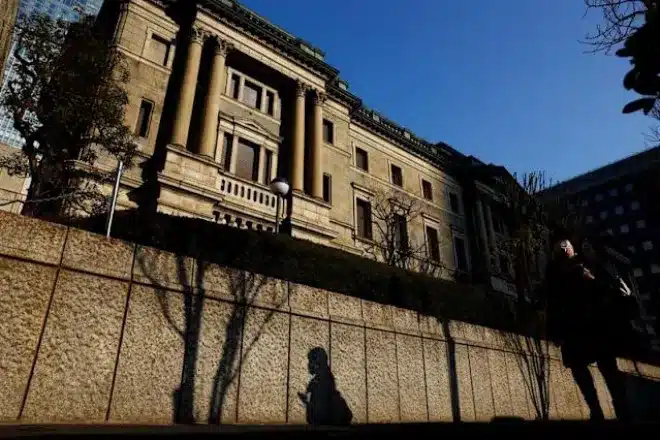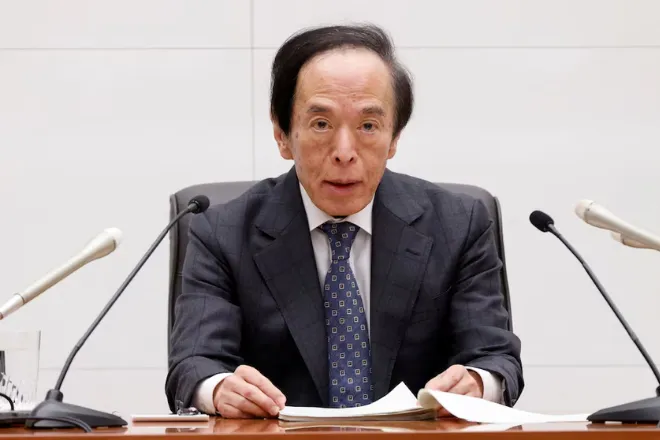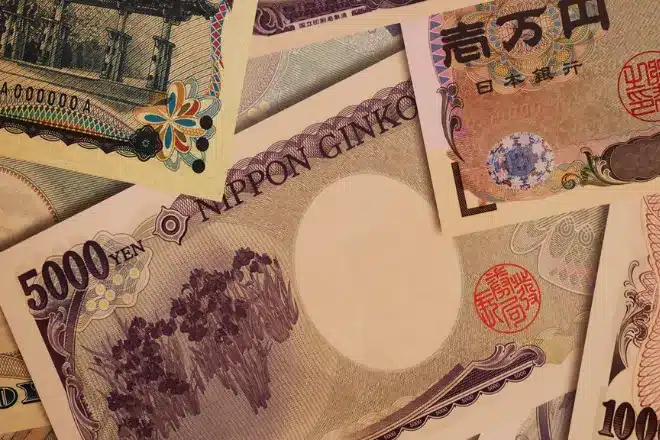The Bank of Japan (BOJ) delays rate hike plans as U.S. tariff uncertainties cloud economic outlook. IMF officials predict the BOJ will postpone further monetary tightening until global trade tensions stabilize, allowing Japan’s fragile recovery to continue. The BOJ delays rate hike strategy reflects growing concerns about achieving sustainable inflation amid external pressures and business hesitancy.
Contents
- 1 BOJ Delays Rate Hike Amid Ongoing Tariff Concerns
- 2 BOJ’s 2% Inflation Target Now Expected in 2027
- 3 Economic Growth Forecasts Reduced
- 4 BOJ’s Current Monetary Policy Position
- 5 Trump’s Tariffs’ Impact on Japan
- 6 Government Response and IMF Recommendations
- 7 Yen Strength as Safe-Haven Currency
- 8 What This Means for Investors
- 9 About H2T Finance
BOJ Delays Rate Hike Amid Ongoing Tariff Concerns
According to senior International Monetary Fund (IMF) officials, the Bank of Japan (BOJ) will likely delay its planned interest rate hikes as uncertainty surrounding U.S. tariffs has created significant downside risks to Japan’s economic growth and inflation targets.
Nada Choueiri, deputy director of the IMF’s Asia Pacific Department, stated Wednesday that mounting concerns about U.S. trade policies and potential retaliatory measures by other nations could substantially impact business confidence in Japan. This uncertainty may discourage Japanese companies from maintaining recent wage increases, potentially derailing the BOJ’s inflation goals.

“We do see that if our reference scenario materializes, the BOJ interest rate increases will be pushed backwards in time,” Choueiri told Reuters in an interview. “In a scenario where growth is dampened, the accommodation may need to be sustained longer.”
BOJ’s 2% Inflation Target Now Expected in 2027
While the IMF still expects Japanese inflation to eventually reach the BOJ’s 2% target, they have revised their timeline. According to their latest projections, Japan will hit this benchmark in 2027 rather than 2026 as previously forecast.
This adjustment comes as businesses hesitate to move forward with expansion plans amid trade uncertainties. “A lot of companies are likely now on the fence, not carrying out their investment plans and waiting for clarity on what’s going to happen. This is postponing investment decisions as well,” Choueiri explained.
Economic Growth Forecasts Reduced
The IMF has significantly lowered its growth projections for Japan in its World Economic Outlook. The organization now expects:
- 0.6% economic expansion in 2025 (down 0.5 percentage points from January)
- 0.6% growth in 2026 (down 0.2 percentage points from January)
“The balance of risks is on the downside for growth and inflation,” Choueiri emphasized, noting that global uncertainty caused by higher U.S. tariffs could weaken consumption and discourage firms from continuing generous pay increases in next year’s wage negotiations.
BOJ’s Current Monetary Policy Position
The Bank of Japan ended its decade-long massive stimulus program last year and raised its short-term interest rate to 0.5% in January, believing the economy was approaching sustainable achievement of its 2% inflation target.
While BOJ Governor Kazuo Ueda has signaled readiness for further rate increases, U.S. President Donald Trump’s tariff policies have complicated decisions about when and how far to hike rates. The BOJ delays rate hike considerations as it evaluates the full impact of these trade tensions.

Trump’s Tariffs’ Impact on Japan
Trump has imposed 24% tariffs on Japanese exports to the U.S., although most have been temporarily paused until early July. A 10% universal rate remains in effect, along with a 25% duty on automobiles—a sector of particular importance to Japan’s economy.
Choueiri indicated that if domestic demand faces significant disruption that threatens the 2% inflation target, “increasing the level of accommodation” might be necessary, suggesting the BOJ could even consider rate cuts rather than hikes under extreme circumstances.
See more related articles:
Government Response and IMF Recommendations
In response to rising living costs and potential tariff impacts, Japanese Prime Minister Shigeru Ishiba announced plans this week to reduce gasoline prices and provide subsidies for electricity bills. Some lawmakers have also proposed temporarily cutting Japan’s sales tax.
The IMF, however, opposes such spending or tax reductions, arguing they would complicate Japan’s efforts to address its fiscal challenges:
“If the economy is going to suffer a lot from the tariffs, there may be a need for some support. But the support will have to be time-bound and very well-targeted,” Choueiri advised.
The IMF maintains that Japan must eventually increase its sales tax rate to manage its substantial public debt. “If there is a cut today, then the effort that will be needed later is going to be bigger, and it’s not going to be helpful,” she added.
Yen Strength as Safe-Haven Currency
Amid global economic uncertainty, the Japanese yen has recently strengthened against the U.S. dollar. Choueiri characterized the yen as “a safe-haven currency given the strength of the economy, as well as the predictability and stability of the economy.”
“The authorities are committed to a flexible exchange-rate regime. It serves the country well. It helps absorb shocks,” she said. “We support their commitment to this regime, and it helps the economy to adjust.”

What This Means for Investors
The BOJ delays rate hike expectations have significant implications for market participants. With monetary policy expected to remain accommodative for longer than previously anticipated, investors may need to adjust their strategies for Japanese bonds, equities, and currency positions.
Analysts will be closely watching the BOJ’s upcoming policy meetings for any signals about its revised timeline for monetary normalization as the global tariff situation develops. The BOJ delays rate hike timeline underscores the delicate balance central banks must maintain between domestic priorities and international pressures.
About H2T Finance
H2T Finance delivers real-time financial news, keeping you up to date with market movements, policies, and global economic events. As part of H2T Media Group, we are committed to providing accurate information and in-depth analysis, helping investors make quick, confident decisions in an ever-changing financial landscape.
For inquiries or personalized assistance, feel free to contact us:
📞 Phone: +84933.948.888
📧 Email: [email protected]
📍 Address: 4/567 Tổ 10 Khu Phố Hòa Lân 1, Thuận An, Bình Dương, Vietnam
At H2T Finance, your success is our priority.
